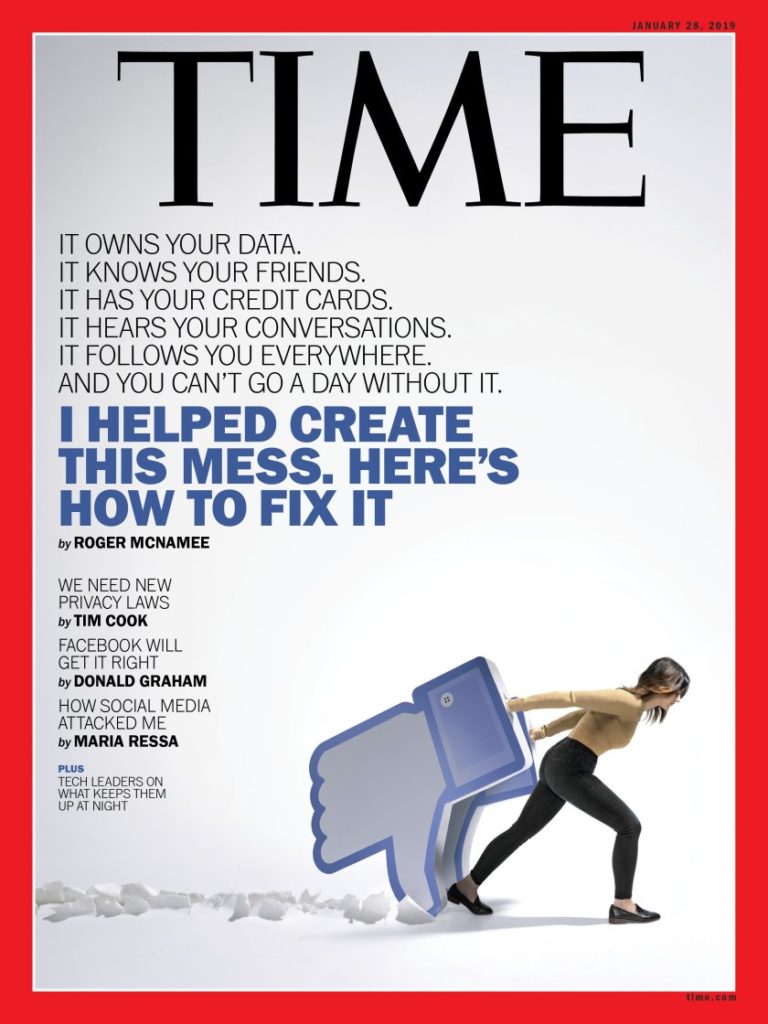
Over the past week, it’s been cold here, then warm, and now cold again. But one of the constants has been how this season seems to drain the world of its color.
It strikes me as a fitting metaphor for what has been happening to the nature and quality of our work in this economy. Choices have been made, and continue to be made, by policymakers on the left as well as right that are draining the color out of work for many, if not most Americans. To restore some of work’s dignity—its life force if you will—we need to make some different choices in the future than we are making today.
In recent newsletters, I’ve been considering how we landed in this increasingly barren place and what we might do to get out of it. Today, we’ll mull over the bold solutions that Oren Cass offers in his new book The Once and Future Worker: A Vision for the Renewal of Work in America. Cass argues that for the sake of our families, communities and individual wellbeing, we need to make some difficult choices about what is good for us as a country and what is not. Before turning to his arguments, here’s a quick review of the discussion we’ve been having recently about the declining prospects for the future of our work.
An immediate challenge is the impending loss of our jobs to machines that can work more efficiently than we can. In an economy that champions “making the most of everything as cheaply as possible,” many of us will simply become too expensive and, at the same time, unable to retrain fast enough for the few jobs that will be left for us to do. My post a couple weeks back considered where opportunities might remain at the “scaling edges” of business today, how an aging workforce can maintain its value during this period of rapid transition, and perhaps most importantly, how government policies that support workers need to be implemented if we want America to continue to capitalize on its human resources.
Around Thanksgiving, I wrote another post about “the mass flourishing” that America enjoyed through much of the 19thCentury and deep into the 20th. During the century and a half when the economy flourished, the workforce generally flourished as well. American leaders celebrated the human values of thinking for yourself, working for yourself, competing with others, overcoming obstacles, experimenting and making your mark. On the other hand, for the past 50 years as policy makers have tried to mitigate every kind of modern risk with regulations and safety nets, the psychic rewards that once came from “the rough and tumble working world” were gradually replaced by a different economic promise, one of ever greater material well-being. Edmund Phelps and others argue that this trade-off has undermined “the mass flourishing” we used to enjoy. Instead of worker satisfaction coming from working, the economy is being driven to produce more and more stuff for the workforce to consume when they’re not in order to keep them happy. Unfortunately, the promise of ever cheaper and bigger television sets and faster gadgets cannot meet the “non-material” needs that used to be satisfied for many by working.
Both of these posts assume that work has inherent value—that it is not merely the means that gets you more money, stuff, influence or time off. By giving us an opportuniy to demonstrate our capabilities, work allows us to realize our potential, be proud of our abilities to provide for ourselves and our families, be similarly proud of what we’re making or doing, and be more confident when facing the future because we feel that we have a stake in it and that it is not merely “happening to us.” When enough individual workers flourish like this, Phelps argues, an economy overall flourishes.
Cass’s argument in The Once and Future Worker assumes this too, before he documents how working families and communities are currently in jeopardy across America. What follows are highlights from his book, from a half-hour talk he recently gave to a group of policy wonks, and from some of the reactions to his value judgments and original proposals.
For Cass, the crisis for the American worker is evident from several unassailable facts: that wages have stagnated for a more than a generation while reliance on entitlement programs has grown and life expectancy has fallen due to addiction and obesity. He is concerned about the vast majority of urban, suburban and rural workers who are not sharing in America’s prosperity because of policy choices that have been made over the past 50 years by “the Left” (for more government spending on safety nets) and “the Right” (for its insistence on driving economic growth over every other priority). Putting expensive band-aids on the victims of pro-growth government policies—when we could simply be making better choices—is hardly a sustainable way forward in Cass’s view. He argues that if:
a labor market in which workers can support strong families and communities is the central determinant of long term prosperity, so it should be the central focus of our public policy.
When it comes to work, Cass is convinced that working—and the social benefit it provides—is more satisfying to individuals than being able to consume bigger and cheaper stuff. He is particularly concerned about the human toll, reliying on studies that say workers never recover economically from unemployment; that men only form families when they have work that can provide for them; that unemployment is a trigger for divorce; and that children have better outcomes when at least one parent is working. Moreover, communities where people are working are more vibrant and tend to attract more investment. In other words, communities filled with workers are good for those living there and good for everyone else too.
In addition, Cass cites time-use data indicating that men who are not in the workforce are watching TV or sleeping, not engaged in other productive activities. Making products or providing services that other people want is also satisfying to many who are doing so every day. Where people aren’t working, they (in Cass’s phase) “export their needs” instead, resulting in a massive transfer of payments from taxpayers to meet those needs–the Left’s band-aids. On the Right, a relentless drive to grow the economy with pro-business policies so we have more to consume at the lowest possible price not only overrides other priorities, but also makes the false assumption that short term material gratification will provide long-term economic health and stability. Whatever is satisfying consumer whims in the moment is not necessarily good for any economy long term.
So what can be done about this?

With the co-dependent (but effectively dead-end) positions of the Left and the Right providing no sustainable way forward, Cass has several ideas.
In addition to questioning many of our investments in growth or safety nets, Cass challenges other allocations that America is making with its wealth, some that I agree with and others less so.
Challenging both sides’ longstanding preference for the elites, Cass would sharply reduce government subsidies for college degrees, noting that most Americans don’t even attend a community college today. These subsidies supposedly produce economic growth because the best students become the most innovative workers. But he argues that a better and fairer result would be less “college prep” and more “vocational training” for the vast majority of students who will never be going to work for a tech company in an innovation hub.
In terms of trade policy, Cass wonders why America has (at least until recently) promoted unfettered access to the cheapest labor in the world instead of creating new jobs here that are equivalent to the ones that were lost through globalization.
He argues for a reduction in environmental investments because (again) they are focused on consumer welfare instead of other considerations. To Cass, the cost of, say, clean air or water is not merely the cost of the equipment that’s needed to produce it but also “the costs” of all the other things that we could be doing for our citizens if we weren’t so preoccupied with environmental safeguards. In his cost-benefit analysis, he’d weigh the costs of subsidies for alternative energy and complying with more EPA regulations with the benefits of more jobs or higher wages. I think weighing, balancing and considering different investment strategies is always a useful exercise, but would question whether environmental investments are “short-term” consumer welfare benefits instead of longer-term, life-sustaining ones.
While admitting that labor unions in America have been overtaken by the politics of the Left, Cass argues that stripped of this influence, we should all be excited by workers who are organizing. He references several initiatives here and in Europe that are challenging pro-growth policies on the Right and championing pro-worker issues that have very few advocates on either side of the political divide.
Cass’s most warmly received proposal has been to take some of the funding for programs that currently support non-workers and give it to low-wage workers in the form of a salary boost, providing them with a supplemented income that can better sustain them and their families. (Think of the vulnerability of many federal employees after recently losing a single paycheck.) Cass notes that we let the government take money from our paychecks (like taxes), why not put additional dollars into them for struggling workers on a regular basis? In addition to encouraging work instead of idleness, such a policy change would be revenue-neutral by moving monies from programs that support non-workers into a new one that bolsters the most vulnerable end of the workforce.
Cass’s bottom line is that investments that help all working families and communities to thrive will sustain our long-term prosperity more effectively than most government investments today. As taxpayers who finance and citizens who vote for the future that we want, he invites us to throw many of our current social expenditures on the table and consider whether they are more (or less) important to the future than enabling all of America’s families and communities to thrive—particularly when much of the country is already missing out on America’s prosperity today. Given the fools bargain we have all accepted, Cass wants us to “try on” his work-based ethic and help to decide whether our country should be embracing very different priorities than it has for the past five decades.
Two prior posts, on June 3 and 10 last summer, argued that whenever a dissenter from the prevailing wisdoms like Cass takes a principled stand, he is inviting those who are unclear about their priorities to clarify them and those who disagree with them to speak up. Principle-based dissent and the conversation that follows almost always makes our “next steps” as stakeholders more assured. To facilitate that forward movement by putting Cass’s ideas into a broader context, here is one helpful reaction to his priority-of-work arguments that also manages to echo what several others have been saying.

After Cass’s book came out, Ross Douthat wrote a column in the New York Times about the struggle amongst the members of “a small church” of moderates “to claim a middle ground between left-wing pessimism about the post-1970s American economy and right-wing faith in the eternal verities of Reaganomics.” Given the similarity between how they and Cass saw the problem, Douthat summarized some of the issues that he and other moderates have with Cass’s proposed solutions.
[A] common thread is that Cass’s diagnosis overstates the struggles of American workers and exaggerates the downsides of globalization, and in so doing risks giving aid and comfort to populist policies [like Trump’s] — or, for that matter, socialist policies, from the Ocasio-Cortezan left — that would ultimately choke off growth.
Not unlike Edmund Phelps, who would also favors largely unencumbered profit seekers, Douthat initially puts more faith in the continued vibrancy of a growth economy than in the need to make as many new investments in our families and communities as Cass advocates.
On the other hand, Douthat allows that America may have made as much progress as it can along its current path, and that the dead-end many (including me) are feeling may already be here.
[I]s the West’s post-1980 economic performance a hard-won achievement and pretty much the best we could have done, or is there another economic path available, populist or social democratic or something else entirely, that doesn’t just lead back to stagnation?
He concludes with what I’d call a fork in the road. If you tend towards the pessimistic view from the perspective of America’s working families and communities then pursuing some of Cass’s proposals may be the only way to preserve at least some of the American economy’s growth prospects going forward.
Perhaps the best reason to bet on Cass’s specific vision is that the social crisis he wants to address is itself a major long-term drag on growth — because a society whose working class doesn’t work or marry or bear children will age, even faster than the West is presently aging, into stagnation and decline.
At the same time, Douthat also notes (with some of Cass’s other critics) that working America’s challenges may be “cultural” instead of economic. I imagine that he’s thinking of factors like declining commitments to organized religion, marriage, community life and even participation in democracy itself, along with greater self-absorption with our devices and crises like opioid addiction. Encouraging work and redirecting the fruits of growth for the sake of thriving families and communities won’t help if what ails working America can’t be cured by larger investments.
I don’t happen to agree with this last possibility—but there it is.
+ + +
One of the reasons that I write this newsletter is because much of the discussion about work and work-related policy, to the extent that it occurs at all, happens below the radar. I’m convinced it’s a discussion that needs to be heard (and chewed on) more widely.
I’m also convinced that good work is of vital importance to those who are doing it as well as to the health of their families, their communities and to the country generally, and that our policy-makers are not grappling at all today with good work’s rotting underbelly.
My hope is that thinking with you about Phelps’ “flourishing economy,” about proposals to survive the future of work, and about Cass’s ideas on work-based investments in families and communities might help to open a wider policy debate as we enter the long, painful slog towards choosing our leaders again.
This post was adapted from my January 27, 2019 newsletter.








